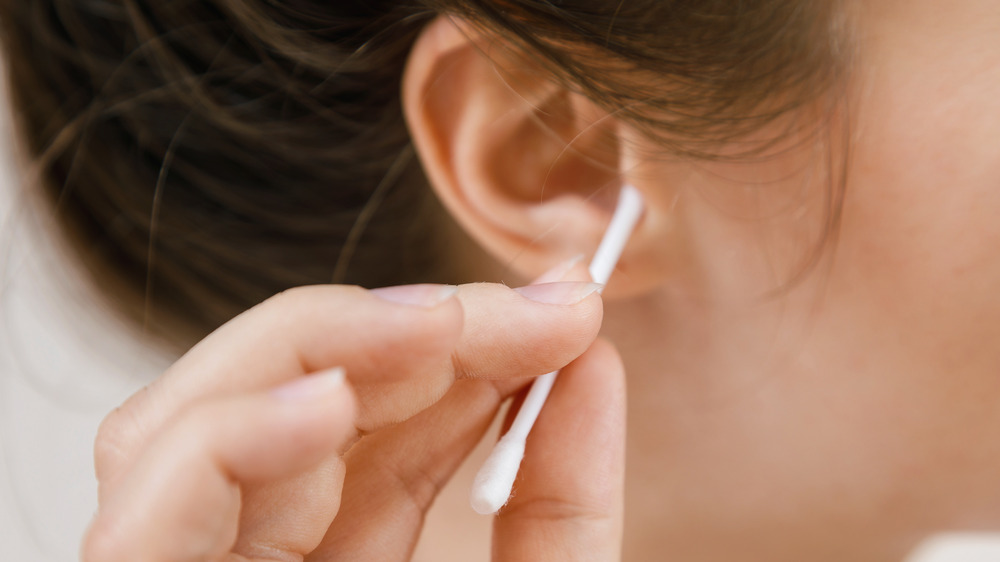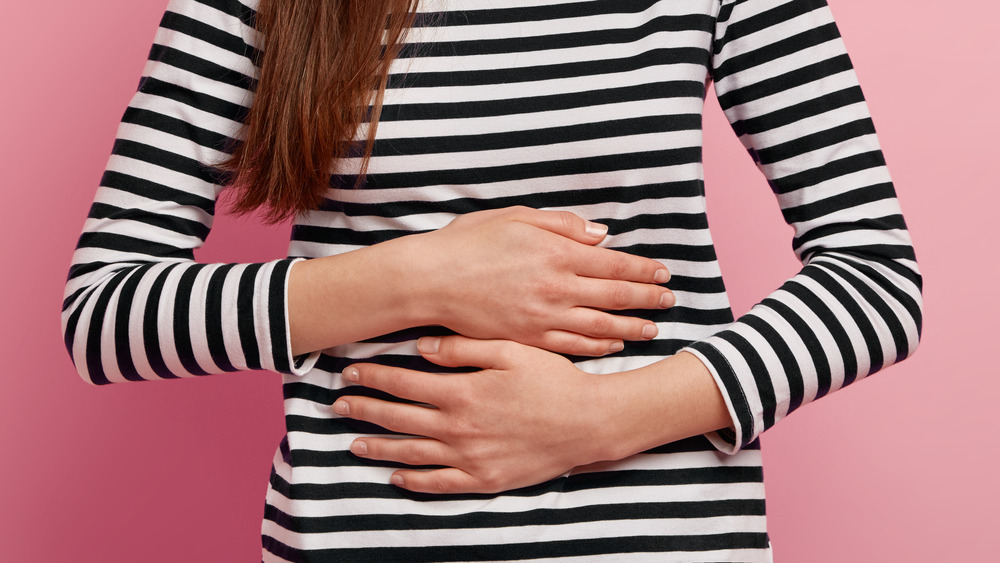How Bad Is It To Eat Earwax?
As a general rule, it's a good idea not to consume anything the human body excretes, with the exception being breastmilk. There are, unfortunately, times when this rule gets a little hard to follow. We all know a kid that ate boogers. And chances are, you or someone you know has accidentally eaten ear wax. This might sound hard to do, but on a busy day it's not impossible to deal with an uncomfortable ear and end up with wax on your finger. Finding it later when you're eating finger food is never fun.
Earwax is universal, but most people aren't entirely sure what it is. That's where the health website for the government of Queensland comes in. It describes earwax — known in medical circles as cerumen — as a combination of dirt, hair, dead skin cells, and bacteria caught in something called sebum. And while the term sebum might not be familiar, it's something else people deal with on a daily basis. Acne.org defines sebum as "the medical name for skin oil."
The oily part of earwax helps prevent dry inner ears, which is one of earwax's main jobs. Over time, it collects dead hair and skin, as well as bacteria and other nasty bits that get into your ear. It's these nasty bits that have people worried about the dangers of eating it. And a quick glance at Quora shows just how often the question comes up.
Is earwax dangerous?
Experts haven't really weighed in on the possible dangers of earwax. This is possibly because it's not something that most people do often enough to worry the medical community. But it's also because there isn't anything truly terrible in earwax. Getting an unfortunate taste off an unclean finger now and then is nothing to worry about. If you find yourself craving earwax, however, you may be suffering from a condition known as pica.
The National Eating Disorder Association describes pica as any instance where a person wants to eat substances typically not thought of as food. The craving has to last more than a month, regardless of whether the person actually eats the substance or not. The disorder is sometimes a side effect of mental health conditions, but can also be caused by anemia or malnutrition. In physical cases, pica is the body's way of trying to fill a large nutritional gap.
If you find yourself craving earwax — or anything else that's not food, like dirt or ice — make an appointment with your doctor. There is no lab test for pica, but your doctor knows what questions to ask and other risk factors that may help with a diagnosis. For those worried about accidentally ingesting earwax, rest easy. It's not pleasant, but it won't hurt you either.
If you are struggling with an eating disorder, or know someone who is, help is available. Visit the National Eating Disorders Association (NEDA) website or contact NEDA's Live Helpline at 1-800-931-2237. You can also receive 24/7 Crisis Support via text (send NEDA to 741-741).


